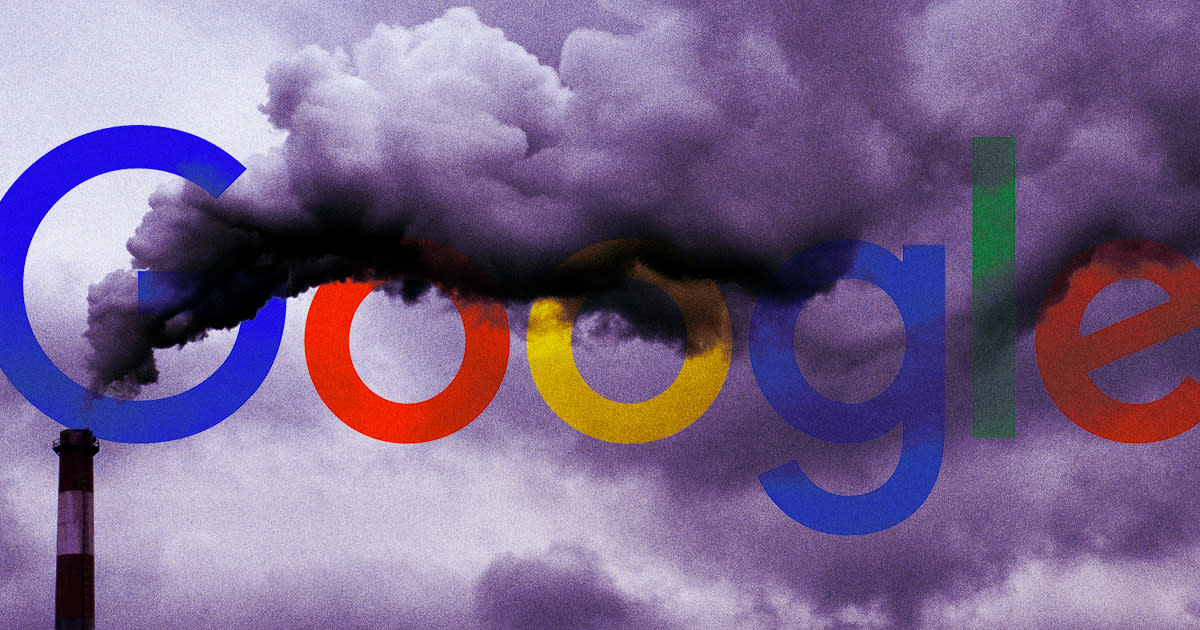Google Is Failing to Meet Important Climate Targets so Its AI Can Tell You to Put Glue on Pizza

Energizer Bunny
Google's latest environmental impact report shows that the Silicon Valley stalwart is woefully behind its ambitious plan to reach net-zero carbon emissions by 2030, as flagged by The Associated Press. The culprit? AI.
Per the AP, Google's 2023 carbon emissions saw a year-over-year increase of a staggering 13 percent from the previous year and 49 percent from 2019, with Google citing its AI efforts as the driving force behind the shift.
Though AI's energy demands remain mostly invisible to the public eye, it's an incredibly resource-intensive field. AI models practically guzzle energy — one search on OpenAI's ChatGPT, for example, is estimated to be equivalent to that of ten Google searches — by putting heavy stress on the data centers needed to keep the models running. The servers at said data centers also run the risk of overheating, meaning that companies like Google and Microsoft often need to use water to cool them back down. (Both Google and Microsoft use an air-cooling system so long as outside temperatures stay below a certain heat threshold, but in a warming world, there are and will continue to be a lot of hot days.)
In short, Google's quest to keep up in the ongoing Silicon Valley AI race has come at the expense of its efforts to reduce carbon emissions. And though Google and other AI makers continue to promote AI and machine learning as tools for mitigating climate change, the public has mostly seen generative AI products like Google's AI-integrated search telling us to eat rocks and put glue on pizza.
What can we say? At least the cheese won't slip off our slices as the planet withers.
Don't Be Evil
As noted in its report, Google has made an effort to incorporate renewable energy sources into its overall power infrastructure. Even so, the fact remains that the company is moving further away from its climate target — though as Google Chief Sustainability Officer Kate Brandt told the AP, its net zero mission is a real toughie, anyway.
"Reaching this net zero goal by 2030," Brandt told the AP, "is an extremely ambitious goal."
"We know this is not going to be easy and that our approach will need to continue to evolve," she continued, "and it will require us to navigate a lot of uncertainty, including this uncertainty around the future of AI's environmental impacts."
Meanwhile, experts like Amanda Smith, a senior scientist at the climate nonprofit Project Drawdown, are urging everyone — makers and everyday users of AI alike — to be mindful of their AI consumption.
"It's up to us as humans to watch what we're doing with" AI, Smith told the AP, adding that "when it's worth it, we can make sure that those demands are going to be met by clean sources of power."
More on Google and AI: Google Is Using a Flabbergasting Amount of Water on AI


